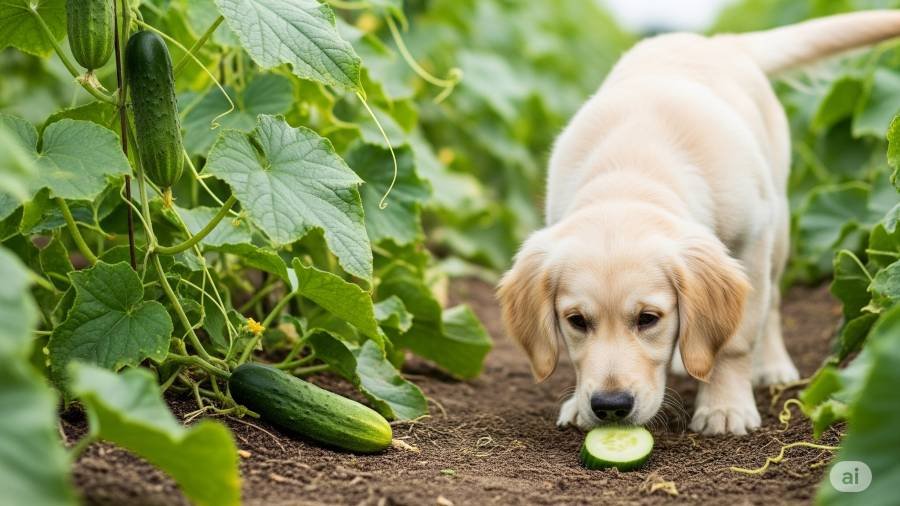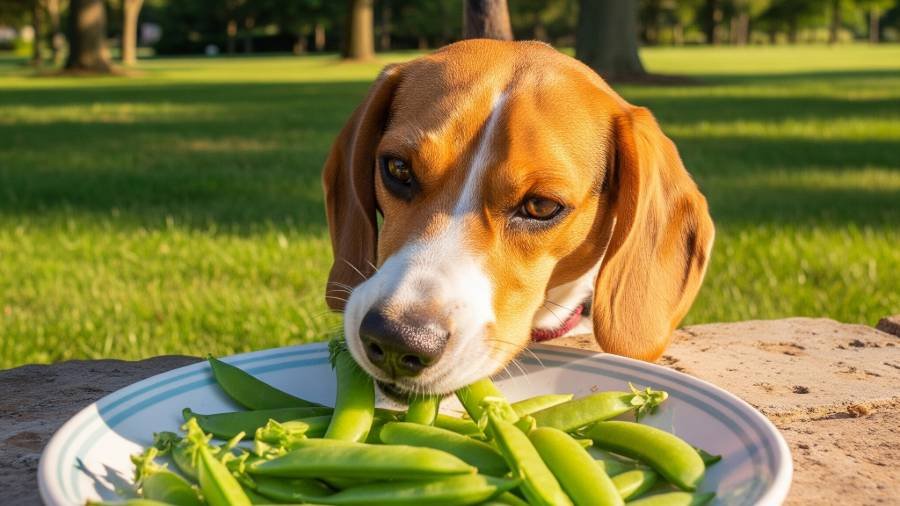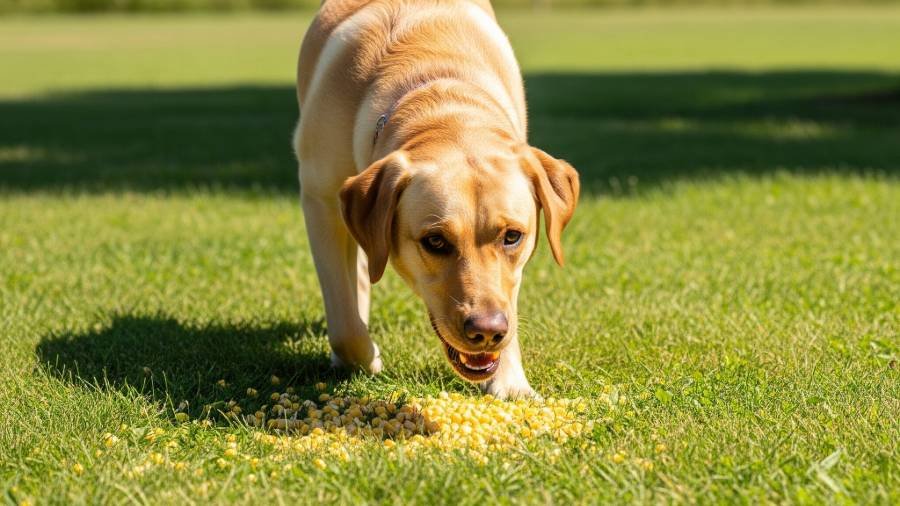Yes, dogs can eat broccoli as a safe and nutrient-packed treat when offered in small amounts, providing various health benefits when prepared properly.
This article delivers a unique, detailed guide on feeding your dog broccoli, exploring its advantages, potential risks, and safe practices.

Potential Benefits of Broccoli for Dogs
When dogs can eat broccoli in moderation, this cruciferous vegetable offers several advantages that enrich a dog’s diet:
- Rich in Vitamins and Minerals: Broccoli is loaded with vitamins C and K, plus calcium and potassium, supporting the immune system and bone health.
- High Fiber Content: The fiber aids the digestive system, promoting regular bowel movements and preventing constipation.
- Antioxidant Properties: Contains antioxidants like sulforaphane, which may reduce inflammation and protect against cellular damage.
- Low-Calorie Option: With minimal calories, it serves as a healthy addition to dog foods, ideal for weight management.
- Dental Health Support: Chewing bite-sized pieces can help clean a dog’s teeth, reducing plaque buildup naturally.
- Hydration Boost: The high water content contributes to hydration, beneficial for active dogs during warm weather.
These benefits of broccoli for dogs make it a valuable choice when you feed your dog broccoli as an occasional treat.
Risks and Dangers of Broccoli for Dogs
While broccoli is safe for dogs to eat, certain risks arise if not prepared or fed correctly:
- Choking Hazard: Large pieces of broccoli can pose a choking risk, especially for smaller dogs if not cut into bite-sized pieces to prevent choking.
- Digestive Issues: Excessive intake may cause gas, bloating, or upset stomach due to its cruciferous nature, which can be difficult for some dogs to digest.
- Isothiocyanate Toxicity: In large amounts, the compound isothiocyanate (found in raw broccoli) can irritate the stomach or lead to mild toxicity, though this is rare with small portions.
- Allergic Reactions: Though uncommon, some dogs may experience itching or gastrointestinal distress as an allergic response.
- Pesticide Exposure: Non-organic broccoli may carry residues, requiring thorough washing to avoid potential health concerns.
- Nutritional Imbalance: Over-reliance on broccoli could skew a dog’s diet, displacing other essential nutrients from balanced dog foods.
How to Safely Feed Broccoli to Dogs
To ensure broccoli is a safe treat, follow these guidelines when feeding your dog broccoli:
- Wash Thoroughly: Rinse broccoli under water to remove dirt, pesticides, or chemical residues, even if organic, to safeguard your dog’s health.
- Cooking the Broccoli: Steam or boil to soften it, making it easier to digest, though small dogs can handle raw broccoli in tiny amounts if tolerated.
- Cut into Bite-Sized Pieces: Chop into small, manageable portions to reduce choking hazard and improve digestibility for all dogs.
- Avoid Seasonings: Serve plain without salt, butter, or spices, which can be toxic or cause digestive issues.
- Feed in Small Amounts: Offer a small portion (e.g., 1-2 tablespoons for small dogs, up to ¼ cup for large dogs) once or twice a week, keeping treats under 10% of daily caloric intake.
- Monitor Reactions: Introduce gradually and watch for gas, bloating, or allergies over 24-48 hours. Consult a vet if problems occur.
- Consult a Vet: Seek veterinary advice before adding broccoli, especially for dogs with sensitive stomachs or a history of digestive issues.
Signs of Broccoli-Related Issues
If a dog eats broccoli improperly or reacts poorly, look for these warning signs:
- Vomiting, diarrhea, or reduced appetite (possible digestive issues from overeating or isothiocyanate)
- Difficulty breathing or choking (from large pieces not cut into bite-sized pieces)
- Excessive gas or bloating (common with cruciferous vegetables)
- Lethargy or unusual behavior (potential mild toxicity or nutrient imbalance)
- Excessive scratching or swelling (rare allergic reactions)
If these signs appear, stop feeding broccoli and contact a veterinarian immediately. Severe cases may require urgent care.
Expert Opinions
Veterinary experts, including the American Society for the Prevention of Cruelty to Animals (ASPCA) and the Pet Poison Helpline, confirm that dogs can eat broccoli safely in moderation, praising its health benefits and low-calorie nature as reasons broccoli good for dogs.
They caution against overfeeding due to digestive challenges and recommend consulting a vet for dogs with specific health needs. For more on safe produce, check can dogs eat Brussels sprouts.
Additional Considerations
- Health Conditions: Dogs with gastrointestinal sensitivities or thyroid issues should limit broccoli due to its cruciferous properties. Consult a vet first.
- Puppies: Young dogs need smaller pieces and monitoring to prevent choking. Try can dogs eat carrots instead if uncertain.
- Dog Preferences: Some dogs enjoy the crisp texture of broccoli, while others may not. Adjust based on their taste.
- Seasonal Availability: Fresh broccoli is abundant in fall, but frozen options are a convenient alternative year-round.
- Storage: Refrigerate fresh broccoli and use within a week; blanch and freeze extras for later use.
- Complementary Role: Broccoli should enhance, not replace, a balanced dog’s diet, serving as a supplement to their primary nutrition.
Safe Treat Alternatives
Instead of relying solely on broccoli, consider these safe-for-dogs treats, tailored to enhance a dog’s diet:
- Cabbage: A small portion of steamed cabbage offers vitamins.
- Peas: A teaspoon of plain cooked peas supports digestion.
- Kiwi: A few bite-size kiwi pieces (peeled) provide vitamin C.
- Plain Fish: A small amount of cooked, boneless fish offers omega-3s.
Introduce new treats gradually, monitor for reactions, and consult a vet to ensure a balanced diet.
Dogs can eat broccoli as a safe, nutrient-rich treat when fed in small amounts and prepared by cooking the broccoli lightly and cutting into bite-sized pieces, offering health benefits like fiber, vitamins, and support for the immune system and digestive system.
However, risks such as choking hazard from large pieces, digestive issues from overfeeding this cruciferous vegetable, or mild toxicity from isothiocyanate in large quantities require careful preparation and moderation.
Puppies or dogs with health issues like sensitive stomachs should limit intake unless approved by a vet, and a balanced dog’s diet should remain the foundation.
Always consult a veterinarian before feeding your dog broccoli, and consider safe alternatives for variety.
For more on canine nutrition, explore can dogs eat spinach or what vegetables can dogs eat.
For additional questions about what dogs can eat or dietary concerns, feel free to ask!





